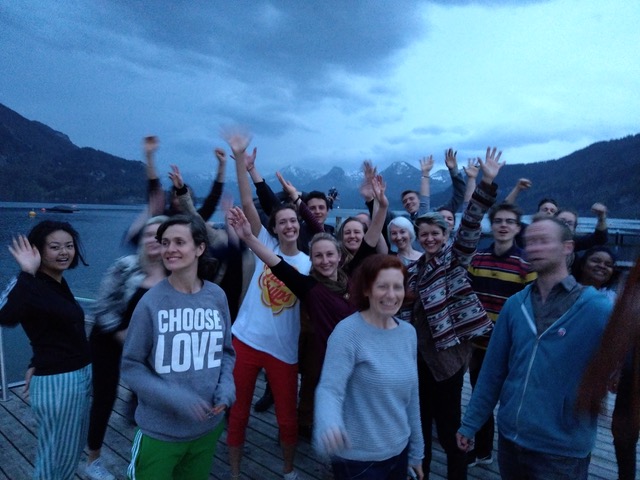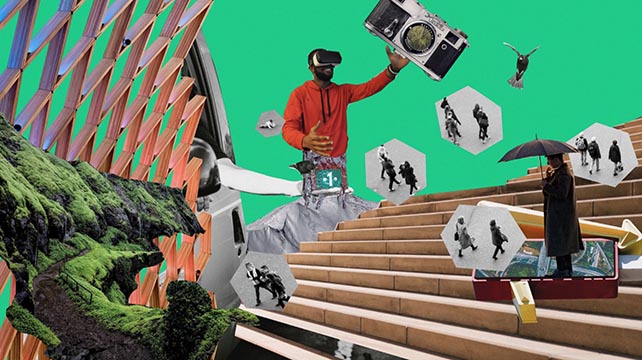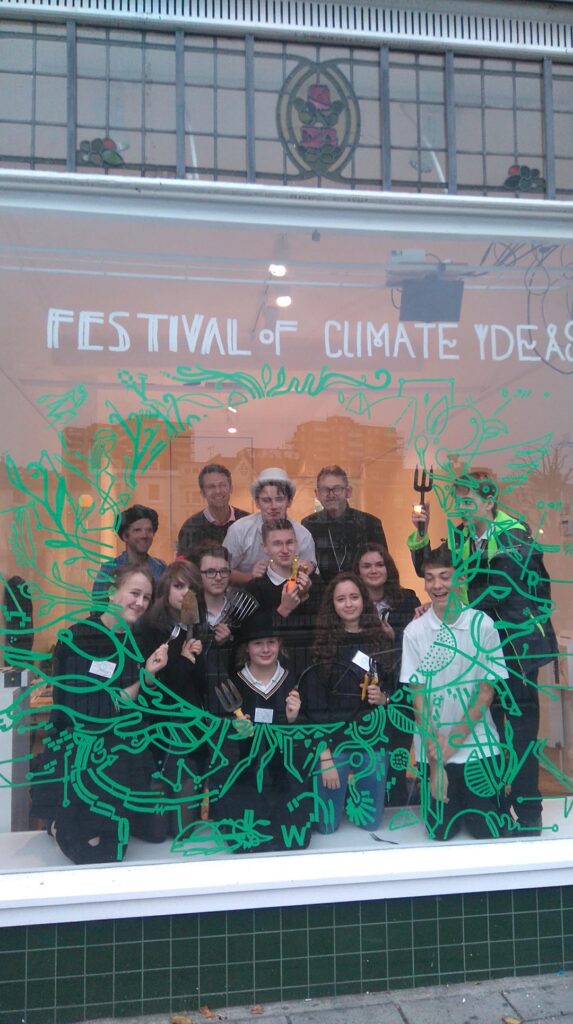Julie Doyle, School of Art and Media, University of Brighton

Wednesday 21st February
Climate communication researchers and practitioners call for new climate stories that go beyond apocalyptic imaginings to offer more culturally meaningful narratives and engagements (Moser 2016; Good Energy 2024). As such, climate communication is a constitutive dimension of climate action, shaping cultural understandings and societal responses to climate change (Carvalho, Russill & Doyle 2021).


Drawing upon my experiences of working on a number of creative climate communication projects with young people in the UK and Europe (Doyle 2020, Cli-Mates 2017; System Change Hive 2019), in this talk I will explore how collaborative and participatory approaches to climate communication can help facilitate multidimensional and interdisciplinary modes of climate learning and engagement. In foregrounding playfulness, co-creation, emotional sharing and interdisciplinarity, collaborative approaches can facilitate (young) people’s socio-cultural understandings of climate change and increase self and group efficacy. Discussing these findings, the talk will also reflect upon the challenges of time/space specific learning experiences and collaborative projects for researchers and participants. Despite these challenges, I argue for the need to work together across disciplines and practices, and in careful collaboration with communities, to foster new climate stories and engagements.
Biography
Julie Doyle is a Professor of Media and Communication in the School of Art and Media at the University of Brighton, UK. Julie’s research explores the role of visual media and popular culture in shaping societal understandings of, and responses to, climate change. Julie also works collaboratively with artists and cultural educators on co-created climate communications projects that seek to facilitate transformational climate learning experiences. She has provided consultancy for environmental NGOs, government and the sustainability communications sector on best practice for climate and environmental communication. She was a member of the founding Board of Directors of the International Environmental Communication Association (IECA), is on the Editorial Board of Environmental Communication, and her research is cited in IPCC Assessment reports.
Climate communication researchers and practitioners call for new climate stories that go beyond apocalyptic imaginings to offer more culturally meaningful narratives and engagements.
Drawing upon my experiences of working on a number of creative climate communication projects with young people in the UK and Europe, in this talk I will explore how collaborative and participatory approaches to climate communication can help facilitate multidimensional and interdisciplinary modes of climate learning and engagement.
In doing so, I argue for the need to work together across disciplines and practices, and in careful collaboration with communities, to foster new climate stories and engagements.

